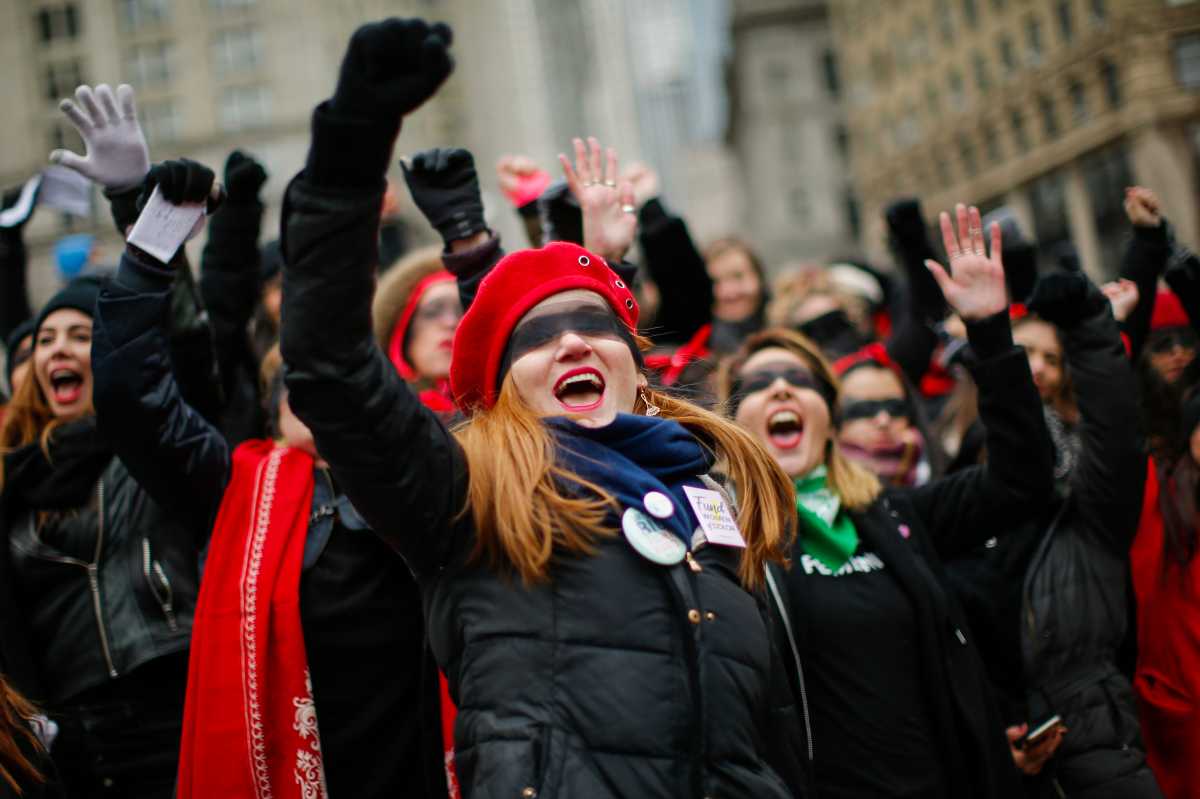Hundreds of people braved chilly, snowy conditions in New York City on Saturday as part of the Women’s March rallies nationwide.
The fourth-annual marches in the city focus on issues including climate change, reproductive rights, pay equity, immigration reform and LGBTQ rights.
“Today, we will be the change that is needed in this world! Today, we rise into our power!” activist Donna Hill told a cheering crowd in Foley Square in Manhattan.
People gathered for separate late morning rallies in Foley Square and Columbus Circle in Manhattan, where temperatures were below 30 degrees. The two groups planned to converge near Times Square Saturday afternoon as part of a “Rise and Roar” rally.
The wife of Democratic presidential candidate Andrew Yang also spoke in New York City. Evelyn Yang told CNN in an interview aired this week that she was sexually assaulted by an obstetrician while she was pregnant with the couple’s first child.
There were marches scheduled Saturday in more than 180 cities.
The first marches in 2017 drew hundreds of thousands of people to rallies in cities across the country on the day after President Donald Trump was inaugurated. That year’s D.C. march drew close to 1 million people.
Thousands gathered in Washington, D.C. for this year’s march, where three key issues seemed to galvanize most of the protesters: climate change, immigration and reproductive rights.
“I teach a lot of immigrant students, and in political times like this I want to make sure I’m using my voice to speak up for them,” said Rochelle McGurn, 30, an elementary school teacher from Burlington, Vermont who was in D.C. to march. “They need to feel like they belong, because they do.”
Peta Madry of New London, Connecticut, was celebrating her 70th birthday in D.C. by attending her fourth Women’s March with her sister, Cynthia Barnard, of San Rafael, California. Both women were wearing handknitted pink hats that date from the first march. With pained expressions, they spoke about Trump’s determination to reverse the policies of his predecessor Barack Obama and his treatment of women.
“Look what he’s doing to Greta Thunberg,” Madry said, referring to the teenage climate activist. “He’s the biggest bully in the world.”
Melissa McCullough of Georgetown, Indiana, said when she recently turned 50 she promised herself that she would get more involved politically. “I’m here to protest Trump, as a woman,” she said.
Her daughter, 19-year-old University of Cincinnati student Elizabeth McCullough, chimed in to say that most women’s issues are human issues, and they talked about the need to protect immigrants.
“You have to push to protect everyone or no one’s safe,” Melissa McCullough said.
The protesters planned to march around the White House, but Trump wasn’t there. He is spending the holiday weekend at his resort in Florida.
Organizers of the Washington march faced criticism from some local African American activists for failing to focus on local issues and damaging the ability of local activists to organize.
“Local D.C. is a domestic colony and the actions of national organizers have to recognize that,” Black Lives Matter D.C. wrote in a letter this week to Women’s March organizers. “Here in D.C., these unstrategic mass mobilizations distract from local organizing, often overlook the black people who actually live here and even result in tougher laws against demonstration being passed locally.”
With Lynn Berry of the Associated Press





































